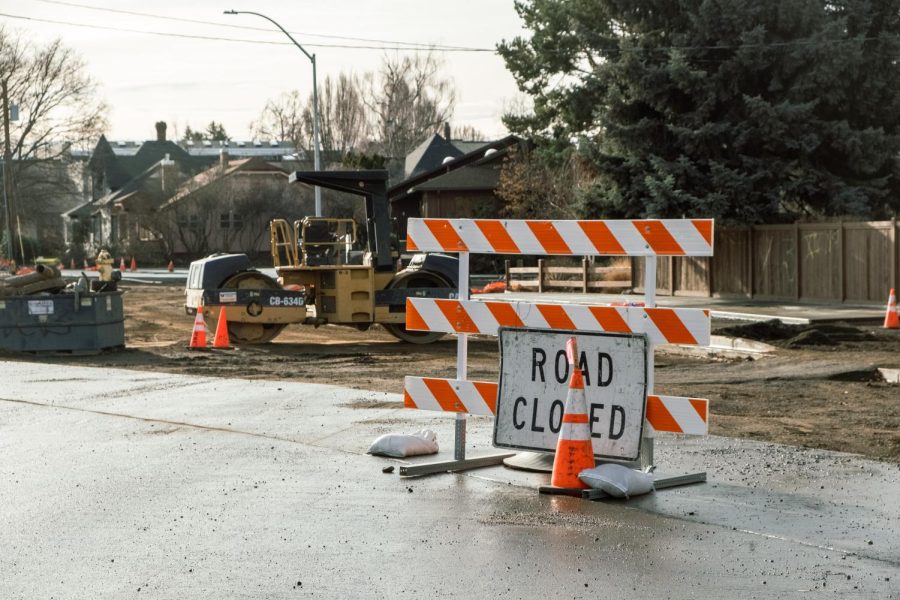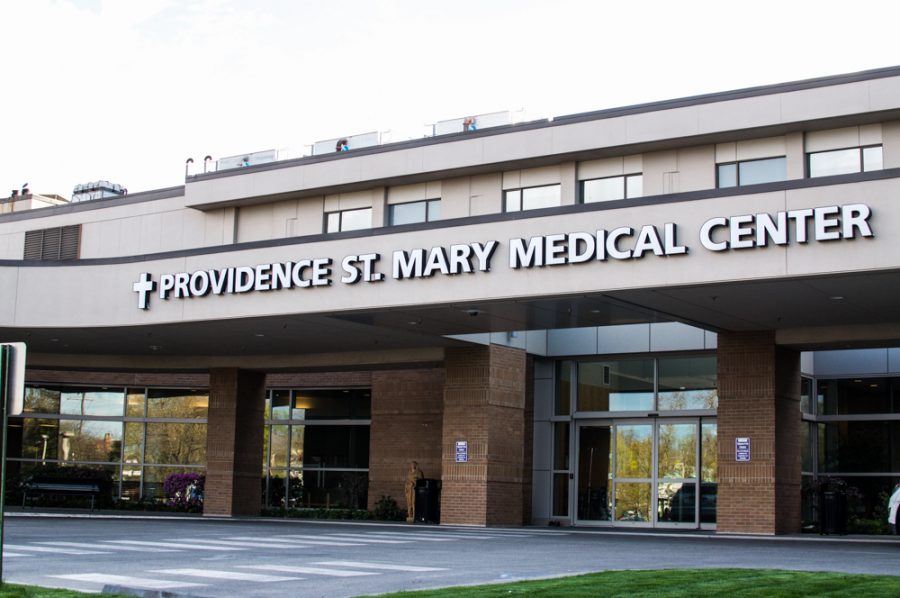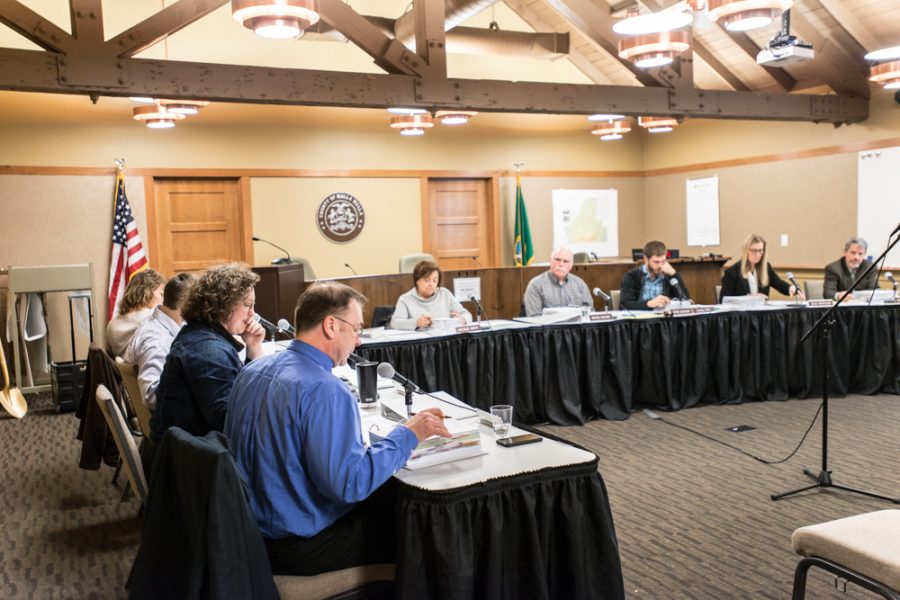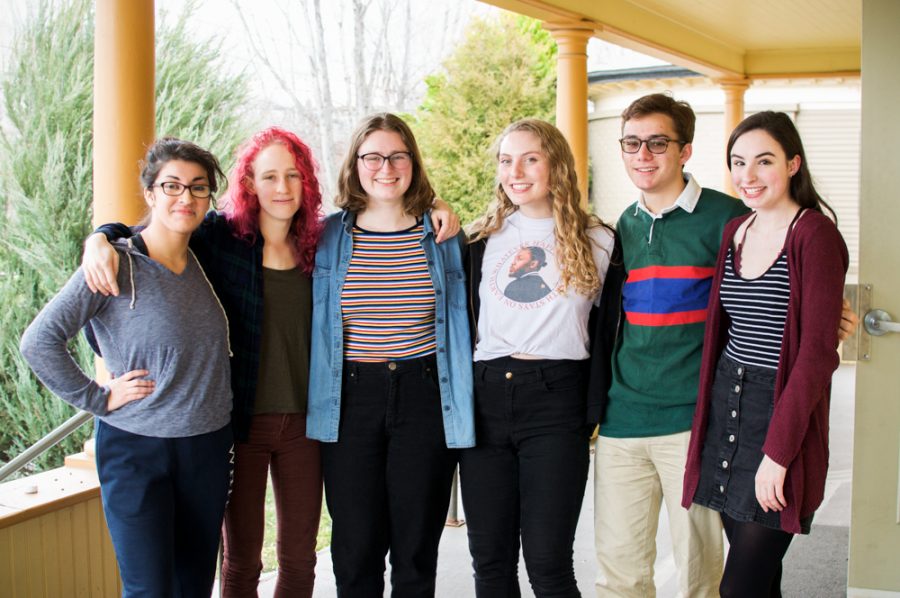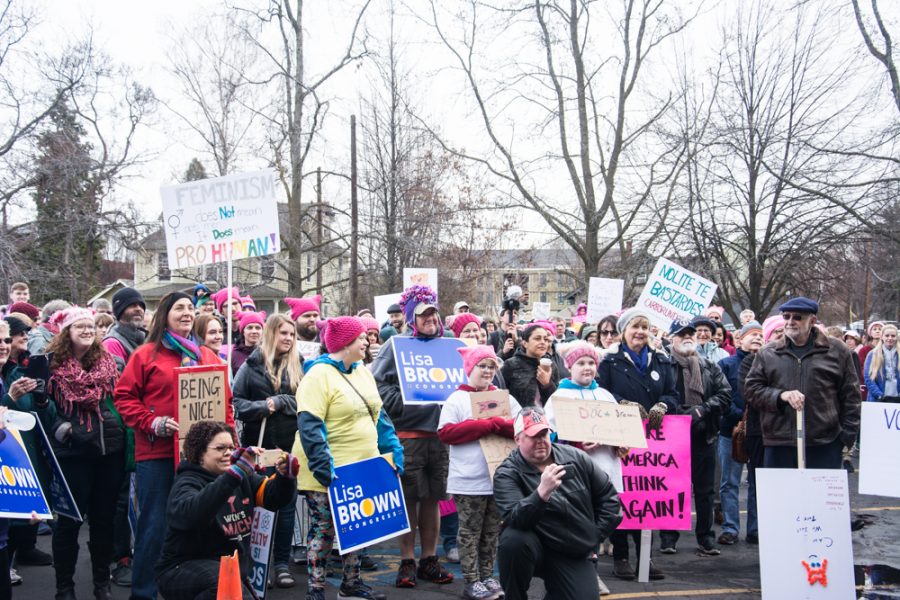Community-Based Research as a Democratic Practice, commonly known as State of the State, is a politics class with a focus on community involvement. Unlike most classes at Whitman, it forces students to put down the textbooks and instead learn through hands-on community involvement and research. Recently, the class attended a prominent conference in Seattle, Wash., where it learned from and discussed immigration issues with community leaders in Washington State and researchers from across the nation and around the world.
Professor of Politics & Paul Chair Political Science Paul Apostolidis created the program in 2005 with two key goals in mind: to give Whitman students the opportunity to gain invaluable skills through partnering with the community and to provide research material that is useful to community members and leaders throughout the state. His students do this by learning to become legitimate researchers, sharing their research with others and using their findings to implement concrete change.
“[State of the State] is a community research-based class, where each student is supposed to write a report on an issue relating to the Latino communities in Washington State. We write [substantial reports] fall semester, and spring semester is dedicated to spreading our findings,” said senior class member Seth Dawson.
Junior Madelyn Peterson described the research project that she is working on for the class.
“My research is focusing on the impact of a federal immigration policy, Secure Communities, on the relationship between Latino communities and local law enforcement in the Tri-Cities,” she said.
Recently the class traveled to Seattle for the weekend to attend and participate in the National Immigrant Integration Conference hosted by the organization OneAmerica. There the students were able to learn from and interact with other researchers.
“It is an annual conference talking about different issues facing immigrant populations, and what people are doing on a local level to provide resources for immigrant populations, and being in solidarity with those populations,” Peterson said.
The 16 State of the State students volunteered at the conference, which gave them a unique and substantial role. The students helped by keeping track of lecture time and taking official notes throughout the conference. Most importantly, they could participate in the conference, discussing and sharing ideas with the other researchers.
“We could ask questions, interact with everyone, and then there was also a researchers’ caucus after the conference one day. That was really great, because we got to talk with other researchers from all across the nation and a couple people from out of the country, and kind of network, share our research so far,” said Dawson.
There were people from 38 different states and seven different countries in attendance, making a total of 750 attendees at the conference.
The topics discussed at the conference were directly in line with the students’ research and invaluable in helping them improve their own projects.
Peterson described how the panels she attended applied to her own project.
“The conference discussed lots of different themes and different issues facing immigrant populations, one of which was human rights and immigration law and law enforcement. During that track, we discussed, with all different kinds of professionals and people working in labor unions and such, what the implications of immigration policy are on human rights and what rights are being violated,” she said.
Senior Katie DeCramer noted that State of the State is in one of the most unique and valuable classes on campus, highlighting the conference as a motivator to continue to work towards social justice.
“It’s so valuable. I’m learning so much. To interview someone and to listen to them about their experiences with race and with culture, it’s so different than getting out your textbook and reading a chapter about someone’s experience with race,” she said.
To follow State of the State’s community-based research online, go to www.walatinos.org.


